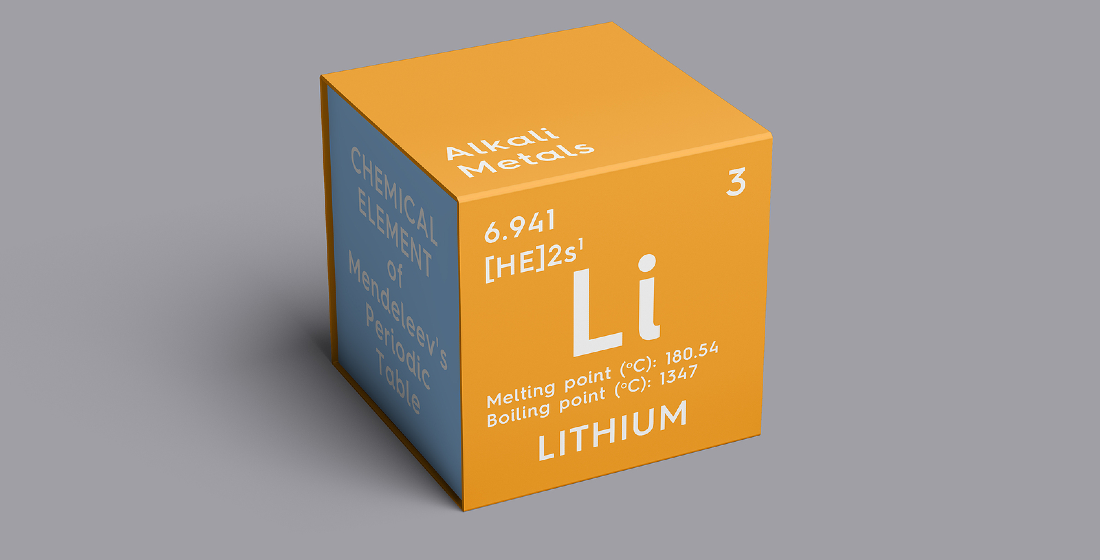On financial triage: In viro veritas 3
TXF’s ‘in viro veritas’ series looks at the effects of the Coronavirus Covid-19 pandemic on trade and export finance. The first in the series was an early stage call to action, the second showed ECAs picking up their activities and this, the third, looks at more a coordinated response from institutions.

Financial commentary is medicalising, unsurprisingly. I’ve found it in my own writing, but also hearing export finance banks talking about ‘we’ve triaged’ our clients. “We’ve gone through our existing book, triaging, engaging with ECAs, looked at where we are on a deal by deal basis, looking at each sector and on a wider basis to see which clients will need respite and which are experiencing stress, and we’ve been looking at previous contracts to see where there are issues,” one export finance banker said.
Welcome news for the bankers themselves is that the Basel Committee announced on 27 March it has delayed implementation deadlines of Basel III for another year, pushing deadlines back to January 2023 (and transitional arrangements way out to 2028). Those regulations were there to solve the last banking crisis, and bank liquidity is not getting explicit help this time around, but internal risk capital weightings will have less pressure/scrutiny. Separately, one insurance professional says, keeping up with the medicalisation theme: “You might be able to ask the question (not attributable to me) as to whether what we have now is different to the ‘banking crisis’ of 2008-9. That was about the ‘heart’ whereas this now is about the ‘arteries’. Or was that banking crisis a test run for what is coming next?”
Stepping into marketable risks
Perhaps mindful of that, also on 27 March, the European Commission published the news that it was temporarily relaxing its 2013 rules on what constitutes marketable and non-marketable risks for short term export credit insurance, changing all risk to non-marketable. That was after a rapid consultation only initiated on 23 March. “The ICC was one of the 64 respondents,” Henri D’Ambrieres at HDA Conseil told TXF. “We highlighted the need for this measure based on some market indications received last week and data from the 2008 crisis.”
By way of background, the EC normally sees marketable risk as short term business (up to two years credit) on buyers in the EU and certain other developed countries. Short term risks in the developing world and all medium and long term (MLT) risks are ordinarily defined as non-marketable. Until now, EU ECAs are only permitted to write non-marketable risk.
Obviously export finance is a small portion of the liquidity and risk crunch potentially faced along supply chains, but this is a welcome and necessary move. Interesting too is the relaxation of pressure on ECAs themselves to ask permission to make changes, just to notify after the fact.
The consultation highlighted what it called an ‘imminent insufficiency of private insurance capacity for exports to all countries’, while demand for insurance is expected to rise during the crisis. TXF spoke to Sian Aspinall, managing director at credit and political risk insurance broker, BPL Global. “The specialty insurance market in London and globally is continuing to function well, thanks to almost all parties having tried and tested business continuity planning (BCP) systems that are working well and thanks to electronic placing,” she observes.
“Obviously for the single situation trade credit insurance market, the severe economic uncertainty and the disproportionate impact on certain industry sectors are proving challenging, though our experience to date evidences that insurers are typically honouring commitments and maintaining support on existing transactions. In the last week or so since we fully implemented home working, we have both placed new policies and obtained quotes from insurers on new business,” she adds.
Cooperation and capacity
Under the umbrella of the Berne Union, the cooperation between private insurers and ECAs has improved in recent years (a TXF keynote interview with the Berne Union will be published soon). Alongside the private market, ECAs increasingly reinsure each other in the market, and capacity has been increased, though data is not always clear. Those with reinsurance agreements will be better placed to weather claims. Valentino Gallo founding partner at Javalyn Partners, told TXF there is stress in the SCF business where private insurers [among others] play a major role.
“The strong banking sector and the unprecedented injections of liquidity by the central banks should mitigate the pressure on private insurers if the economic activity would restart relatively rapidly. In the project finance sector the activity of the private insurers is relatively limited; each project has its own story. For many projects currently under construction there could be completion delays and cost overrun issues which would require to all parties involved to sit around the table and agree on bespoke restructurings.
Sitting around tables may already feel like a fond memory, but it’s interesting to hear exporters and project financiers already adapting to the strange new normality. As one financier at a European EPC contractor told TXF this week from her apartment, where she would normally be on the road in Africa, the Americas or Asia, “With a lot of these large projects, they have the momentum of inertia, so movement is still happening slowly... But the next couple of weeks will be crucial to test if the inertia stops, or if we can continue with current capabilities. Banks have continued to be doing well for us, have continued delivering and helping things move internally and their services haven’t stopped, which is good.”
Action roundup: More ECAs stepping up
ECAs individually have certainly been stepping up in the past couple of weeks with improved terms, flexibility and payment holidays. Highlights include:
On 25 March US Exim ramped up its support by financing flexibility programmes such as bridge financing, pre-delivery/PXF, SCF guarantee, and working capital guarantee programmes.
Spain’s CESCE will be providing guarantees for Spanish exporters, mainly SMEs and self employed workers, through the banks to provide working capital solutions, among other wide-ranging incentives in packages totalling around €20 billion as part of the government’s €200 billion package announced on 17 March.
Poland’s KUKE is widening its scope for coverage for capital goods exports and is taking on 100% of commercial and political risk from exporters or banks financing or refinancing new export transactions with more than two year tenors, at least until the end of the year.
Enterprise Singapore, the de facto ECA, enhanced its Enterprise Finance Scheme (EFS), augmenting its working capital and trade loans’ size and tenor, upping the risk share of the government to 80% and allowing loan moratoriums in certain cases to improve businesses access to credit.
On 24 March, Turk Eximbank launched a support package which will extend repayment terms along with other incentives to mitigate a slump in export orders alongside the government’s $15 billion relief package.
Others upping their SME and mid cap loan and guarantee support in addition to earlier measures include EDC and Bpifrance (which is increasing guarantees to startups and SMEs).
Coordination with risk participation and blended finance
Some facilities are directed specifically at the medical sector too. The ADB, for instance, has directed $200 million through its supply chain finance programme to support companies (via banks) critical to fighting Covid-19 to boost production of test kits, masks, and ventilators. On 30 March Standard Chartered announced it has committed $1 billion financing working capital and preferential loans for exports and imports to support to companies helping tackle the virus.
Where will it stop?
The limits to support in the crisis are unknown. “While there has been action in certain very high visibility sectors such as aviation and shipping, the ECAs may be setting themselves with other sectors wanting similar treatment in due course, it will be difficult to resist,” cautions the export finance banker.
AE Housman, the poet, pointed out in 1922 those who follow the physical sciences can use facts and experiments to test their opinions. “When a chemist has mixed sulphur and saltpetre and charcoal in certain proportions and wishes to ascertain if the mixture is explosive, [he] need only apply a match. When a doctor has compounded a new drug and desires to find out what diseases, if any, it is good for, [he] has only to give it to his patients all round and notice which die and which recover.” He was medicalising the study of dead poets a century ago.
While we are still in the middle of the financial triage stage of the response to the crisis, there are those looking beyond. One is what happens after the demand and supply shock as China picks up, the other is what happens to global supply chains if we have to move, in the phrase of Toscafund’s chief economist Savvas Savouri, from the dominant philosophy of ‘just in time’ in supply chains, to ‘just in case’. What will the financial store cupboard look like in the future as corporates look to stockpile inventories (and cash)?
TXF’s ‘in viro veritas’ series looks at the effects of the Coronavirus Covid-19 pandemic on trade and export finance. You can find the first and second articles in this series below:
Coronavirus and global trade: In viro veritas?
ECAs characters in action: In viro veritas 2
Now time to get up to speed on the markets.
Here's our exclusive TXF in depth articles
Cote d’Ivoire CCGTs: Still a tale of pure DFI debt – for now
The purely DFI-backed 462MW Azito gas-fired power plant expansion in Cote d’Ivoire and its successor – the 390MW Atinkou CCGT plant - proves DFI financing firepower is still the only weapon in project sponsors’ financial arsenal to get such large-scale IPPs across the line. But when will ECAs and banks join the funding mix?
Latin America: Whose project finance backyard is it?
Chinese inroads into Latin American project markets are on the rise – and US isolationist policies have helped. With Chinese sponsors willing to take on the type of risk that others will not, is a massive increase in Chinese project financing into Latin America a political and economic inevitability?
Keynote: Chameleon KDB – when a DFI is not a DFI
Adolfo Dindo Abueg, co-head of project finance, Asia Pacific at Korea Development Bank discusses life when your development bank is a development bank only in Korea, and elsewhere it’s a full blood commercial bank. Abueg shares how the bank operates, and his optimism in spite of Coronavirus.
Exclusive TXF Tracker and Originals content
Cindy van Niekerk joins Finteum
Cindy van Niekerk has joined Finteum – an interbank lending platform – from R3. She will be product manager at the new lending platform which will be run on R3 Corda and Fnality’s distributed ledger technology.
Shandong Energy out to banks for term loan
Shandong Energy Group, via its Australian subsidiary has mandated Ping An, formerly known as Shenzhen Development Bank, as the sole MLA on a three-year $300 million loan.
More details on Pamplona-Cucuta 4G financing
Union Vial Rio Pamplonita, a subsidiary of Sacyr, has reached financial close on a $520 million deal for its Pamplona-Cucuta 4G highway concession in Colombia.
Karoon Energy taps RBL for Bauna oil and gas field acquisition
Karoon Energy is expected to reach financial close in June on the first tranche of debt stapled to its reserve-based lending (RBL) facility backing the acquisition of Petrobras' 100% stake in the Buana oil and gas field in Brazil.
KAPP relaunched IWPP tender delayed again
Kuwait Authority for Partnership Projects (KAPP) has delayed the relaunched tender for advisory services on the Az Zour North 2&3 and Al Khairan IWPP schemes - possibly until next month.
Press Metal closes $300m facility for stake in BAI
Malaysian-based aluminium company Press Metal has closed a $300 million dual-tranche Islamic financing to partially back its acquisition of Bintan Alumina Indonesia (BAI).
Summit Gazipur II oil-fired plant to close in Q2
Summit Gazipur II – wholly owned by Singapore-headquartered Summit Power International – is expected to reach full financial close on a 10-year $150 million loan to refinance the debt stapled to the 300MW heavy oil-fired Summit Gazipur II power plant in Bangladesh by the end of Q2.
Malampaya's RBL underwritten
Although unconfirmed by the borrower, Udenna Corp’s subsidiary UC Malampaya Philippines is said to have signed a reserves-based loan (RBL) with banks to finance its acquisition of a 45% stake in the Malampaya gas field project in the Philippines from Chevron.
Hills M2 refinancing reaches contractual close
Transurban’s Hills M2 Motorway (Hills M2) concession has reached contractual close to raise A$815 million ($486 million) of non-recourse debt via two new bank debt facilities funded in the Asian loan market.
Jubail 3-A IWP bid pricing out
Saudi Water Partnerships Company (SWPC) has released the prices of the developers that submitted bids for the $1 billion Jubail 3-A IWP project.
Engie raises €2.5bn from bond issue
Engie has raised €2.5 billion of bond financing for a wide range of renewables projects. The financing comprises a five-year €1 billion senior unsecured tranche priced at 1.375% (A3 rating), an eight-year €750 million senior unsecured tranche at 1.75% (A- rating), and a 12-year €750 million senior unsecured tranche at 2.125% (A rating).
Jawa 9&10 coal-fired plant nears signing
Sponsors of the 2x1000MW Jawa 9 and 10 ultra-supercritical coal-fired power project in Indonesia – PLN-owned Indonesia Power (51%) and Barito Pacific (49%) – has mandated ECAs and banks to fund the scheme. Signing is expected over the coming months.
CCECC mandates arrangers for Regiotram loan
China Civil Engineering Construction Corporation (CCECC) has mandated MUFG to arrange at least $300 million in loans for its 39.6 km Regiotram Occidente commuter rail PPP concession in Bogota.
AdP prices bond
Despite the privatisation of Aeroports de Paris (AdP) having been put on hold earlier this month due to the “instability of the markets”, AdP has gone out the bond market and priced a €1 billion ($1.1 billion) 2026 and €1.5 billion 2030 bond at 240bp and 290bp, respectively.
Cogswell joins Portland Advisers
Ian Cogswell has been made a senior adviser at Portland Advisers. He will work on projects in the energy sector, which will include oil and gas, as well as power and renewables.





